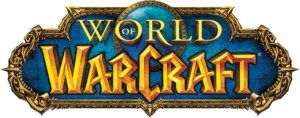Hello and welcome back to another edition of the IROSS blog! Today will be talking about the relationship between some of my favourite things! Education and Games!
First off I would like to talk about
GLOBAL SCHOOL PLAY DAY! Here is a link to their website.
https://www.globalschoolplayday.com
Here is a TED talk explaining some of the concepts behind Global School play day!
https://www.youtube.com/watch?v=Bg-GEzM7iTk&feature=youtu.be&list=PLc695sWmPGpybRuxvaPgvwd2s8eGqAWYj&ab_channel=TEDxTalks
I was fortunate enough to partake in a global play a couple of years ago! It was a completely free and unstructured day of play for the students. I was able to watch young students (Elementary School) make up their own games, establish their own rules, and generally have a wonderful day. The following day the students were required to reflect on their experience about play day and what they had learned. A lot of the students I worked with talked about the enjoyment they had, how wonderful it was to have a day with their friends and classmates without parents or teachers controlling them but what stuck out to me the most how was many students talked about respect and regulations. This was a little bit of a surprise to me until I also reflected upon the day. A lot of the kids made up new games to play with their friends and schoolmates, but the playground unlike the classroom has different consequences. When one does not follow the rules in the classroom there is a possibility they may be reprimanded by the teacher, but when a kid doesn’t follow the rules to a made up game, the other youth may choose to play without them. Now as a supervisor during play day it was my job to make sure students don’t fight but it wasn’t my job to solve their problems. It was a very effective and educational day for both teachers and students and I would highly recommend it to all school.
Rhetorically I would to ask “Why do humans stop making up their own games as they age?”
Now back to games in education. Growing up I loved math games, gamified class reading competitions, in class jeopardy and I even played scientific vocabulary hangman in university. It was always a sure-fire method to get me engaged in class or with the material. I truly believe games can be a successful part of education.
Things get a little tricky when it comes to video games and education. Personally I learned an immense about communication while partaking in 40 person raids in a game called World Of Warcraft (Vanilla version). The 40 man raid required 40 people working together and communicating instantaneously in an extremely organized manner for time periods usually around 4-8+ hours and during this time period one individual mistake can ruin all the progress made by the collective 40 people. It quickly taught me a lot about the importance and power of organized communication as I had to listen to multiple different people while completing organized tasks. Interestingly enough years down the road when I working with grade 7 students at educational retreat World of Warcraft was brought up by some students which instantly allowed me to bond with them through the love of the game. These students told me World of Warcraft was how they fine tuned their reading and typing skills. We conversed about how important those skills were to the game and how it motivated them and offered a method of practice.

Although I mentioned some benefits to unstructured games led by students those games were educational on a social-emotional level but they weren’t directed towards any learning objectives and the same could be said about most of the off-the-shelf video games that are played.
Which brings me to a question:
What is more important in gamification teaching academic content or academic skills?
Now well I don’t believe that educational video games should be a mandatory part of public education, I do believe they can be supplemental.
Leave a Reply
You must be logged in to post a comment.